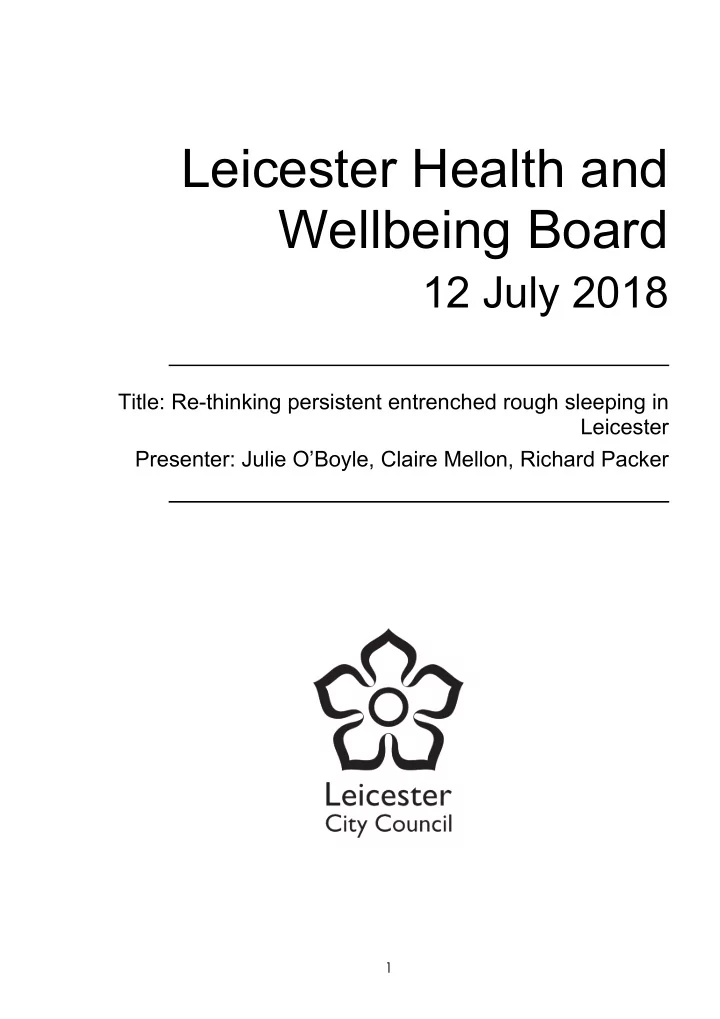

Leicester Health and Wellbeing Board 12 July 2018 Title: Re-thinking persistent entrenched rough sleeping in Leicester Presenter: Julie O’Boyle, Claire Mellon, Richard Packer 1
Author contact details : Julie.oboyle@leicester.gov.uk 1.0 Purpose of the paper or presentation To provide the Health and Wellbeing Board with an overview of an ongoing project investigating a new approach to managing persistent entrenched rough sleepers in Leicester. 2.0 Recommendations for the board to consider The Health and Wellbeing Board is asked to provide multi-agency leadership for the project across key partners 2.0 Content Leicester in common with other major cities across the UK is experiencing increased visibility of rough sleepers together with other “street lifestyles” such as begging, street drinking and street based drug misuse. Despite a wide range of services being available, including hostel accommodation, outreach, and treatment and support services, provided by both the statutory and voluntary sector, there remains a persistent core of vulnerable people with complex needs who are not engaging fully with these services. There is growing evidence of the extent and range of psychological and mental health problems amongst homeless people and rough sleepers. It is estimated that up to 60% of adults living in hostels in England have a diagnosable personality disorder compared to 10% in the general population. All other mental health disorders are also significantly over-represented in the hostel population with around 70% of hostel users experiencing mental health problems with mental health problems being both a cause and a consequence of homelessness. 1 2 3 History of neglect, abuse and traumatic life events dating back to childhood and continuing through adult life are also common 4 . Average life expectancy nationally for rough sleepers is 42 years. Within Leicester, there has also been a particular issue with a strain of TB which has been circulating in this group, requiring intensive input from local TB services, Public Health England and outreach workers. Across the country a growing number of areas have invested in services using a Psychologically Informed Environment (PIE) approach as a means of tackling entrenched homelessness. There is growing local consensus across a wide coalition of interest locally that this approach could help manage these complex individuals. 1 Maguire et al, in prep 2 Cockersell, 2011 3 Rees, 2009 4 http://www.jrf.org.uk/publications/tackling-homelessness-and-exclusion 2
The presentation describes a feasibility study to investigate the needs of this complex group, the evidence of what works and a gap analysis between what is provided and what is needed. This will inform an options appraisal for a way forward. 4.0 Next Steps The project has commenced and we are currently in the data gathering phase. The Health and Wellbeing board is asked to support the project by providing multiagency leadership across key partners 3
Recommend
More recommend